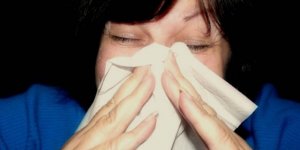| Health / Health News |
Scientists identify gene responsible for aging
Through "cellular reprogramming," a team from the University of Wisconsin-Madison discovered the mechanism that controls the aging and rejuvenation of mesenchymal stem cells (MSCs), which can change into a variety of different cell types, such as muscle or bone.

Scientists identify gene responsible for aging. Photo: tasnimnews.com
Their study adds to what scientists already knew about how cellular processes cause MSCs to age.
"Our study goes further to provide insight into how reprogrammed MSCs are regulated molecularly to ameliorate the cellular hallmarks of aging," said one of its co-authors Wan-Ju Li.
"We believe our findings will help improve the understanding of MSC aging and its significance in regenerative medicine."
Regenerative medicine is concerned with re-growing, replacing and healing organs or tissue damaged by age and disease.
The researchers extracted MSCs from human synovial fluid, the body's natural lubricant found around joints, including the knees and elbows.
They then 'reprogrammed' MSCs into a form of stem cell converted into an embryonic-like state, offering the scientists the possibility of creating any cell within the adult body.
The team found that a protein (GATA6) was repressed in the changed MSCs cells, leading to an increase in another protein (known as the SHH) and the expression of another (called FOXP1), which is active in the development of the brain, heart and lungs. (Tasnim News Agency)
YOU MAY ALSO LIKE





